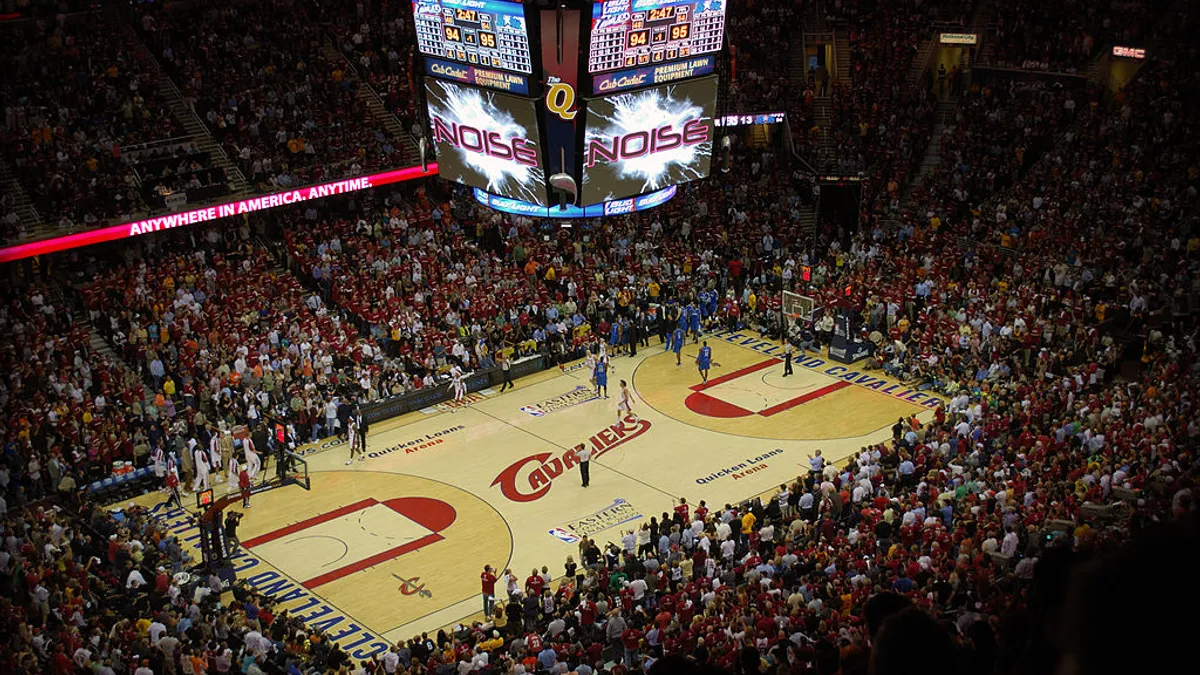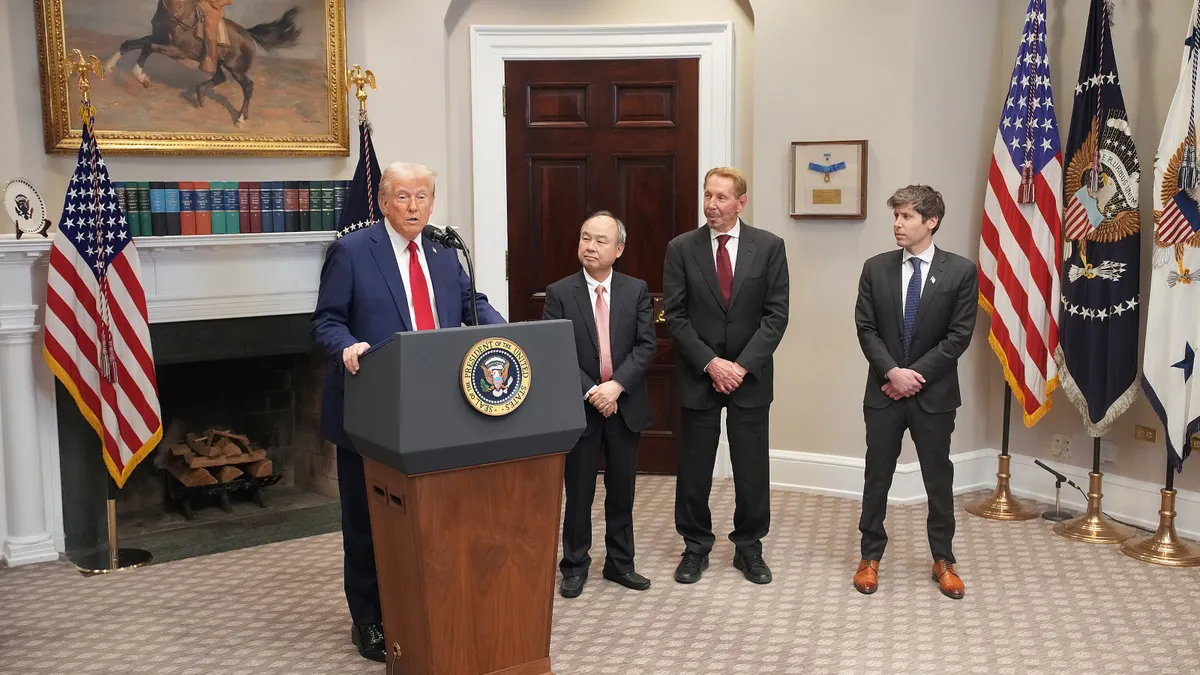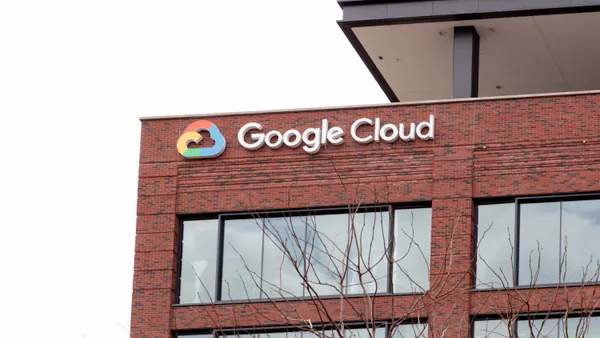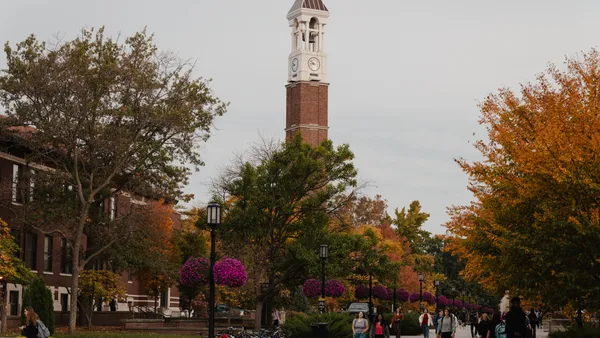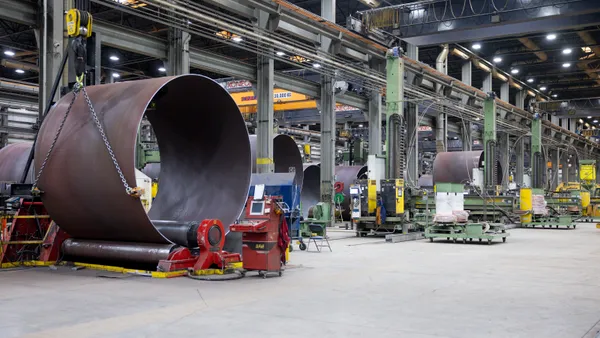Dive Brief:
-
Renovations have begun on the Cleveland Cavaliers' Quicken Loans Arena, meeting the construction deadline of Sept. 15 set by the NBA for the team to qualify to host an All-Star game in 2020 or 2021, according to Cleveland.com.
-
Cuyahoga County will finance the $140 million project through a bond sale, but the team will absorb $70 million of costs, Crain's Cleveland Business reported. The county, the city of Cleveland and the regional tourism bureau will split the balance. Cleveland will pay its share with 11 years' worth of admission taxes on arena event tickets.
-
The city's financial commitment spurred protests among local activists, who gathered enough support for a referendum that could have prevented the city from contributing to the renovation and caused Cavaliers owner Dan Gilbert to temporarily kill the project. Critics withdrew their petition last month after reaching an agreement with the city.
Dive Insight:
Local governments are often happy to participate in sports-venue renovations because a major professional team can deliver economic benefits to the region well beyond the cost of construction. For example, the city of Atlanta is financing $142.5 million of the Hawks' $192.5 million renovation of Philips Arena. Atlanta Mayor Kasim Reed estimated the upgraded facility could yield $1 billion in new development in the city's downtown. In exchange for financing such a large portion of the project, the Hawks agreed to stay at the arena until 2046 or pay up to $200 million in penalties.
Whether it happens through new construction or a renovation, stadiums and arenas are including more spaces and features to attract today's sports fans, who could easily watch their favorite teams play from home. Tom Tingle, former director of Skanska USA's sports and entertainment business, told Construction Dive last year that there is a "battle for the fan," so design is focused on enhancing the experience of attending a game.
This can include convenient parking options, robust wireless capacity so that attendees can tap into social media and communicate with friends while at a game, and plenty of food and beverage venues nearby. Promoting the new fan experience also involves rethinking seating, which is trending toward an intimate bowl-like design in many new venues and with more room throughout the concourses for walking around.


